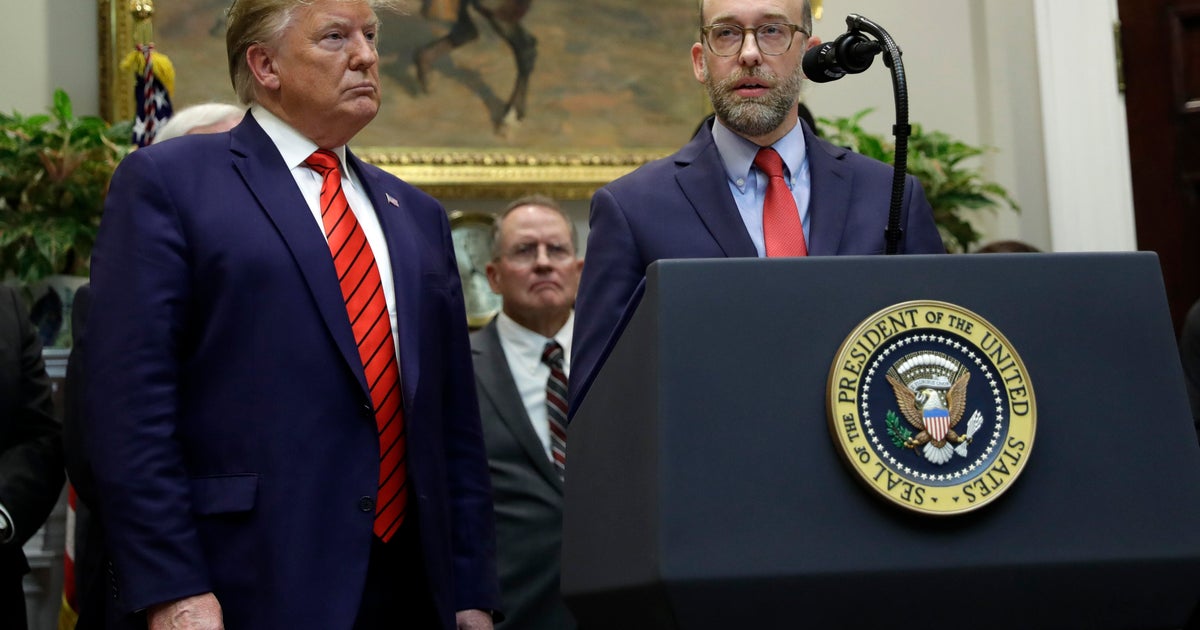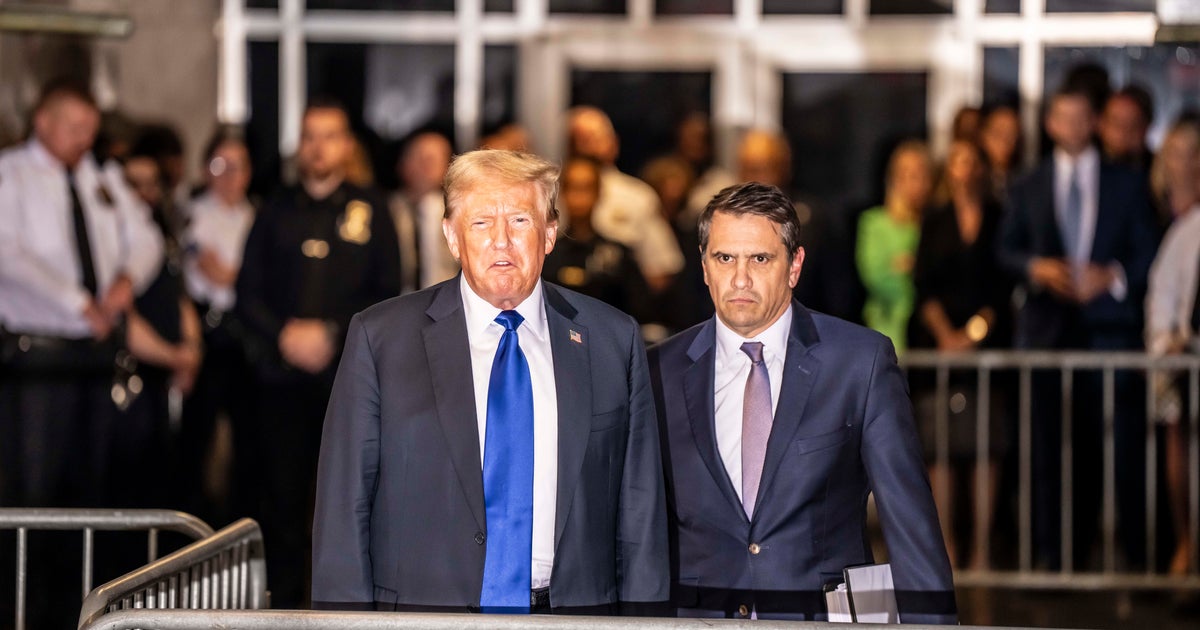Rod Rosenstein denies report saying he discussed invoking 25th Amendment to remove Trump
Reporting by Paula Reid
Deputy Attorney General Rod Rosenstein sharply refuted a New York Times story that says he suggested recording President Trump to show the turmoil inside the White House and talked about recruiting some in the cabinet to invoke the 25th Amendment to declare Mr. Trump unfit and remove him.
"The New York Times's story is inaccurate and factually incorrect," he said in a statement. "I will not further comment on a story based on anonymous sources who are obviously biased against the department and are advancing their own personal agenda. But let me be clear about this: Based on my personal dealings with the president, there is no basis to invoke the 25th Amendment."
Rosenstein issued an updated statement saying he "never pursued or authorized recording the President and any suggestion that I have ever advocated for the removal of the President is absolutely false."
The Times' account is based on sources who were briefed on the meetings or conversations when Rosenstein was alleged to have made the remarks, as well as sources who were briefed on memos or reports written by FBI officials including then-Acting FBI Director Andrew McCabe, which allegedly detailed Rosenstein's comments.
According to the Times, Rosenstein met with McCabe and other senior Justice Department officials the week after FBI Director James Comey's firing, in the spring of 2017. In this meeting, the Times says, he told McCabe he was considering trying to convince officials to invoke the 25th Amendment and suggested wearing a wire to secretly record the president when visiting the White House, and told a person in the meeting that he was serious.
One former senior Justice Department official who was in the room when Rosenstein made the remark about recording the president was made tells CBS News, "I remember this meeting and remember the wire comment. The statement was sarcastic and never discussed with any intention of recording a conversation with the president."
CBS News has has confirmed that while McCabe's interpretation was that this was a serious suggestion, others in the room say it was clearly a joke. CBS News has also confirmed that McCabe claims in his memos that Rosenstein discussed possibly trying to invoke the 25th Amendment, but others in that meeting don't recall this reference. Sessions in particular has been very loyal to the president, and it could be difficult for anyone to convince him to consider invoking the 25th Amendment.
McCabe, who declined to comment for the article, released a statement through his lawyer, Michael Bromwich after the article was published. The statement did not deny the allegations in the article, and it acknowledged he had written memos to keep a record of his discussions with top administration officials. There are two sets of the memos -- one held by the special counsel and one held by the FBI -- and McCabe's lawyer says he doesn't know how the media obtained the memos.
"Andrew McCabe drafted memos to memorialize significant discussions he had with high level officials and preserved them so he would have an accurate, contemporaneous record of those discussions. When he was interviewed by the Special Counsel more than a year ago, he gave all of his memos -- classified and unclassified -- to the Special Counsel's office. A set of those memos remained at the FBI at the time of his departure in late January 2018. He has no knowledge of how any member of the media obtained those memos," Bromwich said.
The White House has not yet responded to the report.
According to the Times, Rosenstein told McCabe that he might be able to convince Attorney General Jeff Sessions and Chief of Staff John Kelly to invoke the 25th Amendment. Sessions fired McCabe earlier this year, two days before he was to retire with a full pension, after FBI officials recommended his dismissal. A subsequent internal report found that McCabe had "lacked candor" on multiple occasions in conversations with federal investigators, which McCabe refutes. He believes he was fired as part of the administration's war on the FBI.
Rosenstein has been repeatedly criticized by Mr. Trump, as he oversees the Russia investigation and appointed Special Counsel Robert Mueller. Mr. Trump has reportedly considered firing Rosenstein, and their already tense relationship may be worsened by this report. Conservative House members have also discussed impeaching Rosenstein.




